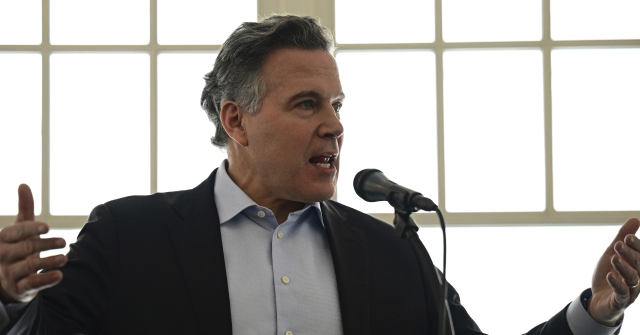In a recent debate, Pennsylvania Republican Senate candidate Dave McCormick criticized incumbent Senator Bob Casey (D-PA) over an unfulfilled commitment by U.S. Steel to invest $1.5 billion in the Mon Valley. This discussion was framed within a broader context of potentially blocking the $14 billion sale of U.S. Steel to the Japanese company Nippon Steel. McCormick emphasized a more hands-off government approach in general but argued for intervention in cases deemed a national security concern, highlighting the strategic significance of maintaining a domestic steel industry. Despite Japan being an ally, he pointed out that Nippon Steel operates globally, including in regions of concern such as China, Iran, and Russia, suggesting that this fact underscores the need for careful scrutiny of the transaction.
McCormick expanded on his critique by highlighting the circumstances surrounding the planned investment by U.S. Steel in the Mon Valley, which was ultimately scrapped due to the pandemic. He recounted how the Allegheny County Health Department halted the permitting process amidst the COVID-19 crisis, which led U.S. Steel to abandon its plans for the Mon Valley and instead opt for a new $3 billion plant in Arkansas. McCormick framed this decision as a missed opportunity for the region, criticizing Casey’s leadership for not securing the investment that could have generated significant jobs in Pennsylvania.
Casey, in response, accused McCormick of lacking credibility and argued that he did not have the standing to critique Pennsylvania’s job market. He suggested that McCormick had inadvertently expressed support for outsourcing jobs, which McCormick vehemently disputed. He emphasized that his argument was based on regulatory failures and the lack of an attractive business environment in Pennsylvania, not on endorsing the move to Arkansas. McCormick reiterated that the loss of jobs was a direct result of Casey’s alleged inadequacies as a leader, reflecting a broader complaint about bureaucratic obstacles limiting economic growth in the state.
Moving the debate forward, McCormick challenged Casey to justify his legislative record over his nearly two decades in the Senate. He posed the question of when Casey had effectively intervened on behalf of Pennsylvania’s interests and described him as a “weak” and “liberal senator.” This sentiment resonated with McCormick’s broader campaign narrative, which positions him as a fresh alternative to Casey’s longstanding political career, suggesting a need for change in leadership amidst ongoing economic challenges in Pennsylvania.
McCormick’s approach appears to resonate with an electorate deeming the state’s political response to economic challenges as insufficient. His focus on regulatory hurdles and the need for a proactive stance in attracting investments portrays Casey as ineffective and out of touch with the pressing needs of Pennsylvanians. The narrative surrounding the U.S. Steel investment serves as a focal point for McCormick’s broader critiques regarding job retention and economic revitalization, aiming to galvanize support by invoking a sense of urgency for Pennsylvania’s economic future.
In conclusion, the debate encapsulated key ideological divides between the two candidates: McCormick’s advocacy for reduced government intervention juxtaposed with a robust defense of the domestic steel industry highlights a critical intersection of national security and local economic concerns. Casey’s defense against McCormick’s accusations, while reaffirming his commitment to job growth, struggles against the backdrop of an increasingly challenging economic landscape. As the campaign progresses, the dialogue surrounding investment in Pennsylvania and the accountability of established politicians will likely continue to play a significant role in shaping voter perceptions and decisions in the upcoming election.

